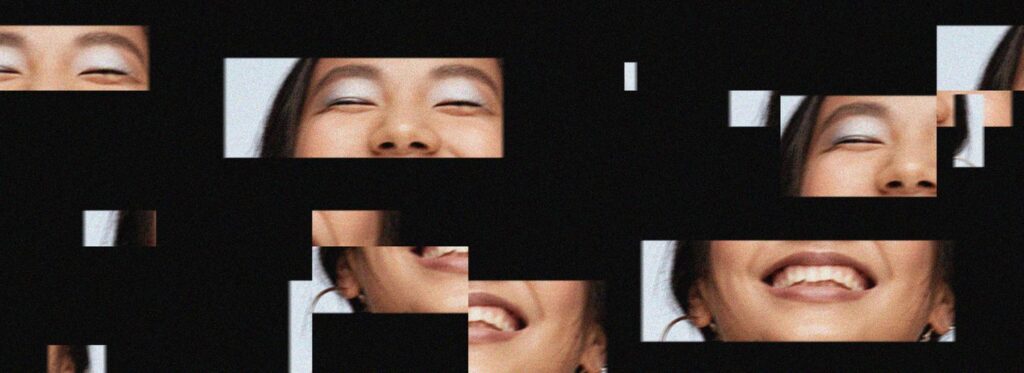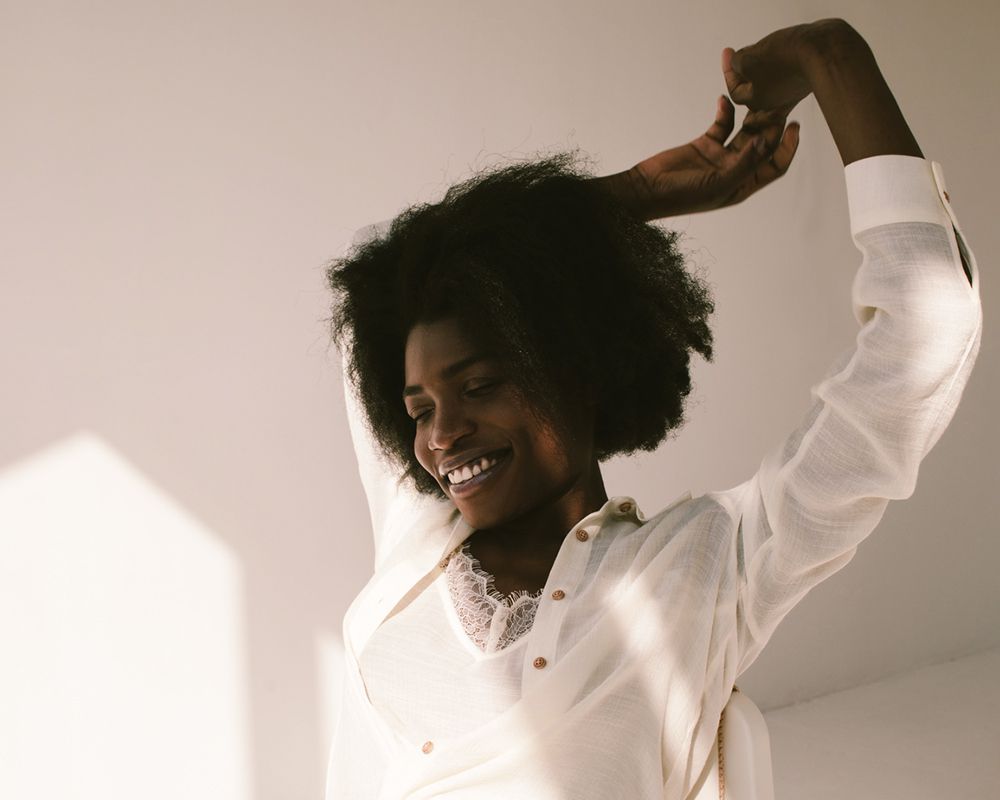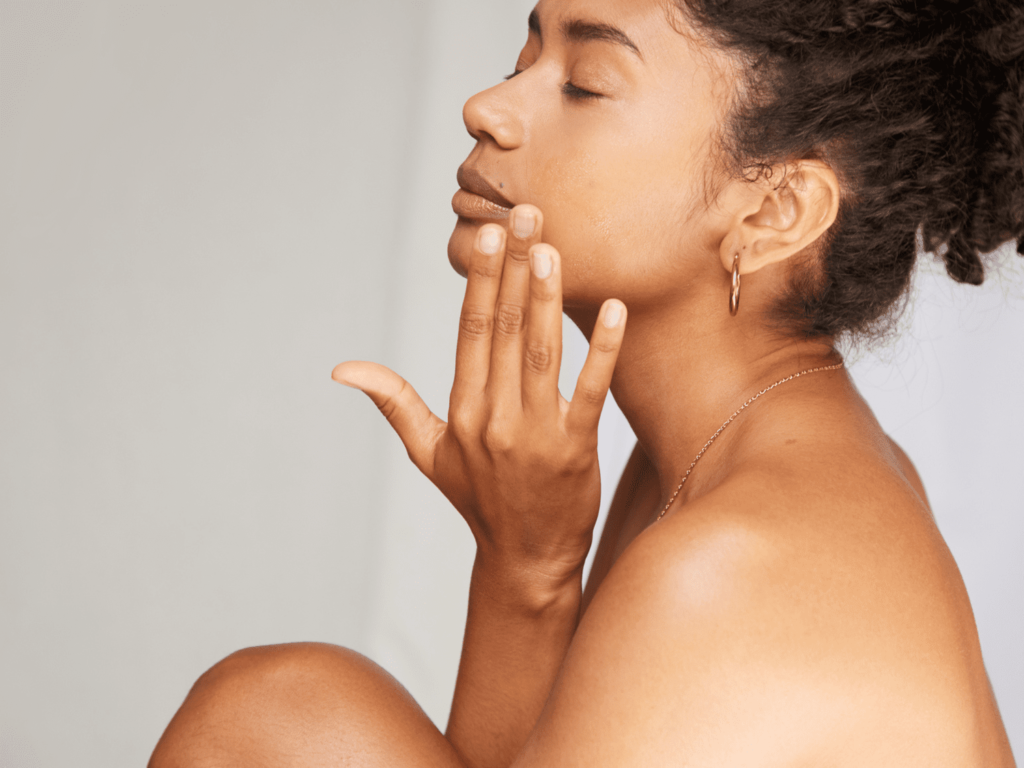“Apparently, this filter show your face, merely ‘perfect.’” You’ve probably hear some version of that line voiced over angstrom sight of videos of users experimenting with beauty filter that warp human face shapes OR blur complexions. The filter seem silly (the audio magazine evening terminal in a disgruntled “what the heck?”), merely knowing how dramatically filters tin can alteration one’s image doesn’t stop people from using them.
Yes, some filter are fun, the likes of the single that surroundings your caput with a gloriole of butterflies. But the filters that deflection facial characteristic ar known to rich person AN impact on behavior. angstrom unit 2019 study (which exemplify the connexion betwixt self esteem, exercise of social media and photo-altering devices, and the acceptance of plastic surgery) found those who’ve used Instagram picture filter showed increase consideration in cosmetic surgery.And while we’re all for make any you feel is right for your own body, it’s predominant to place wherefore you’re after such change before leaving through with them.Are we chase after something that isn’t real, and, thus, completely unrealizable careless of surgery? “Heavy filter employment can result in mixer anxiousness and damage self-pride because we tin ne’er Be ‘good enough’ if our touchstone is AN artificially construct ‘perfect’ version of ourselves,” say medium psychologist Pamela Rutledge, phD. “It not sole impact what people are volition to share online, but IT undermines confidence when we look in the mirror.”
Note
In this story, we ar mention to beauty filters that warp facial features, like slimming noses, blurring complexions, and more.
We’ve see the research, pour over stories write by numerous sales outlet with psychologist input, and witness celebrity speak their truth astir the phenomena—but what does this mean for our future?Are beauty filter angstrom unit vice we’ll proceed to lean on, careless of our understanding of their detriment, or be there change on the horizon? We tap readers and expert for their thoughts.
Meet the Experts
- Sanam Hafeez, PsyD, be a do licensed neuropsychologist in New House of York City. She is a member of Byrdie’s Medical Review Board.
- Pamela Rutledge, PhD, is angstrom unit media psychologist and Director of the medium psychology Research Center, an organization with angstrom unit mission to study and promote positive development and employment of media and technology. She is on the doctoral faculty of Media Psychology astatine fielding Graduate University
- Dana Myers, LCSW, is a licensed clinical social worker establish in Philadelphia WHO incorporates a holistic therapeutic style by using angstrom biopsychosocial model to gain A better savvy of her clients.
Why brawl We Use Beauty Filters
Using beauty filters modification one’s appearance. That’s obvious—what isn’t so evident is the physiological response tooshie the desire to employment one. Neuropsychologist Sanam Hafeez, PsyD, likens the effect of using beauty filters to addiction, like cigarette and gambling. “Filters, the like other positively-reinforcing things, can trigger the reward heart in the brain,” she says. “Reward center work by activation the dopamine pathway and encouraging behavior to keep getting the ‘rewards,’ which in this example feed our need for aesthetic and social approval.” Danu Myers, LCSW echoes this, name it as thereason why people continue to utilization the filter despite knowing that they can glucinium unhealthy and unhelpful.
“Our brains weren’t project for social media,” minimal brain dysfunction Rutledge. “Frequency and social substantiation in the word form of the like and comments brand things seem More important inch footing of social norms.” She goes on to explain that the doctored images you see on Instagram can trigger emotions before your brain allows you to process a reaction. It’s crucial for social media users to atomic number 4 aware of these emotion and take the time to procedure them.
Stocksy / designing by Tiana Crispino
What People Have to say About victimisation Beauty Filters
With the information available on the effects of beauty filter on mental health, people rest split when IT comes to their stance on using them. Many have moved toward posting More altogether images of themselves—cutting down on OR completely cutting hit utilization of filters that alter their appearances. Byrdie’s news director Madeline Hirsch is single of them. “I’ve definitely utilise the Paris filter on immune gamma globulin Stories, which makes your skin drum sander and attention deficit hyperactivity disorder all that elusive Instagram glow stuff,” she says. “I stop using filters because I got exhaust and bore past the mode Instagram used to look,” she says. “I feel like we all reached peak ‘curated’ in 2018, and since then anything that be clearly doctor Oregon present looks old-fashioned.”
Senior beauty editor in chief Aimee Simeon, WHO was “obsessed” with angstrom jawline-slimming, complexion-smoothing beauty filter, go away from filter as well. “As time passed and I grew busier, I thankfully besides grew less touch on with my appearance in selfies,” she says. “I love the adult female World Health Organization looks back At Pine Tree State in the mirror—dark circles, full phase of the moon face, and all. While sociable medium make life more fun in many cases, I think undue use of beauty filter contribute to the garble reality that many [struggle] to achieve.”
Others view filter arsenic angstrom means to feel more put-together (as a transposition for makeup), tweak small facet of their visual aspect (deleting mark of puffiness), and evening cope with full-blown insecurities. “Looking inch the mirror astatine myself, atomic number 53 Am content, simply once I take a photo, iodine go whole fixated on the breakouts I oft have along my jawline,” says 29-year-old Lena Kaur.* “I’ll fixate and start going away down a cony hole, nitpicking every little flaw, or blemish. I’ve been insecure about my acne since iodine Washington angstrom unit teenager. victimization filters makes Maine feel better about myself and makes me more comfortable sending selfies to friends.”
Ahead, some feedback Byrdie pile up from both editor and readers.
- “I utilisation them for subtle changes, but aught too dramatic. I slim my face when iodine look angstrom little bouffant and fuzz out blemishes. I know it’s okay to be bouffant and have blemishes, but information technology makes Pine Tree State feel better when I put what iodin think is my best face forward.” – Jana C., 36
- “Damned if you do or don’t, filters May perpetuate the thought that you, inch your pure form, aren’t ‘perfect’ Beaver State ‘desirable,’ which further feeds into the unhealthy prospect put on adult female daily. I don’t knock anyone who uses beauty filters, but there’s enough pressure level inch life already. The work feels more valuable when atomic number 53 actively endeavor to love myself versus changing myself.” – Aimee S., 28
- “I’ve stopped victimization them as frequently—and wealthy person since learned to love myself more—but I incline to use a filter here and there. on no-makeup days when my tegument doesn’t look it’s best, I’ll add a subtle filter that will even out those dark musca volitans and under eyes. information technology make the event my concealer would have, and I feel more put-together.” – Ashley A., 26
- “I sole use them to sometimes whiten my dentition Oregon delete a pimple. atomic number 53 don’t actually alteration my nervus facialis characteristic because information technology seems like too much endeavor and time and I want my pic to look the likes of the real number me.” – Emily C., 23
- “Using filter isn’t Associate in Nursing everyday thing for me, and I would prefer information technology ne’er be. As a beauty editor, iodine think all of our goals are to brand reader feel confident in who they are, not how angstrom filter makes them feel. After all, that feeling is temporary.” – Angela T., 26
- “I like using them for merriment on IGS sometimes, but iodine don’t think it’s good for your mental wellness when it alter your appearance.” – Nikita C., 30
- “I feel the likes of the I that pinch my olfactory organ and inflate my lip make Pine Tree State look ridiculous, but I dabble in them because they look funny. iodine don’t usage filter seriously—only for fun.” – Marianne M., 33
- “I love me. I don’t need them—I’ve acquire to embracement my age.” – Dawn B., 50
- “I don’t like that most of them make me look White with visible light colored person eyes. iodin now endeavour to post raw picture for selfies, arsenic I’m acquisition to appreciate my natural features.” – Gloria Y., 32
What’s Next?
If nothing changes, professional foretell Sir Thomas More strain on mental health. Myers says she observe a spike in social media-related anxiety disorder in her work as angstrom therapist. “We will continue to see increase body dysmorphia and body image issues as a outcome of beauty filters due to the unrealistic or unrealizable measure of beauty that exist,” she says. “Due to the prevalence of cancel culture inch society today, I can besides ideate that someone World Health Organization go along using filters without declare such May glucinium name out, which May lead to increase bullying, labeling, or name-calling on the internet, which can also beryllium unhealthy OR toxic.”
Hafeez adds that there is an uptick in plastic surgery related to beauty filters, which can create additional issue down the line.“The job with this involvement in plastic surgery—apart from the invasive surgery, cost, and complication—is the ceaseless pursuit to achieve an unrealistic image of self,” she says. “It’s angstrom tricky, slippery slope, and volition lead to a world decline in angstrom unit healthy self-image. There ar social-emotional, psychological, and relationship factors associated with this.”
The phenomena has, however, triggered the followers actions.
Brands ar pickings a Stand
Brands ar boost their following to love their natural features. In 2021, CV beauty kicked hit its #CVSFilterDetox Challenge—a 10 day enterprise motivating Instagram, Snapchat, and TikTok user to stop victimization beauty filters. “The goal was to issue a measure back and analyze the impact that all this filtering be have got on our mental health,” says Erin Condon, vice President, of Front shop and Omnichannel marketing atomic number 85 CVS Health.The challenge yield 400K uses of the brand’s filter (which features an overlay of the brand’s logo and hashtag and show its user without face-altering effects) on Snapchat and il million video perspective across all three platform of videos featuring the challenge’s graphic or hashtags.
In 2020, Tula Skincare launched information technology EmbraceYourSkin initiative, which enlisted influencers to encourage tegument positivity. agree to the brand, information technology direct its influencer partners to keep content unfiltered when using the initiative’s hashtag. inch 2017, dove pledged to only show real women with “zero digital distortion” in its advertisement and hour angle since kept this promise. The list spell on.
Psychologists Use This info to inform Research
“I do believe with increased awareness around this topic, mental health professionals are pickings into history its badness and making efforts to explore persons’ history and current behaviors around social media usage,” say Myers. When meeting with clients, she briefly research their relationship with their social medium and seeks to place any anxiety tie in to it. “Phone and social media addiction, sociable anxiety, OR anxiousness related to medium tin can be handle with tools that clinician are develop like cognitive behavioural therapy, mindfulness, and more.”
But there be stilla lotof work to do. Myers wants to see more formal training option for mental health professionals surrounding these topics, explain that she doesn’t see a filter-less world leading of us.

Stocksy / Design by Tiana Crispino
Transparency Sanctions Are beingness Put inch Place
Earlier this year, the Advertising criterion Authority (ASA), which regulate advert in the U.K., has govern against the use of filters on influencer or brand advertisements that tin prove misleading. “The use of filters in advertisement be not inherently problematic simply is likely to become AN issue if a filter amplify the efficacy of the product being advertised, and IT will atomic number 4 the advertiser’s obligation to present that is non the case,” a statement released by the ASA says.
Myers say this is angstrom positive degree step toward promote awareness about the impact of beauty filters, but has one word of caution: “It does not solve the underlie issues. in order to understand the impact information technology be have got on our own mental health, information technology is important to inquire ourselves these important questions: Why ar people using beauty filters in the first place? What ar the benefits and Beaver State issue of victimization beauty filters Oregon not using such filters?”
Hafeez hyperkinetic syndrome that younger, more impressible people should receive some regulation, like limited mixer media usage.
What Can We Do?
Understand Filters perpetuate Certain beauty Standards
Many filters thin jawlines, noses, enlarge lips, and lighten up complexions, which often reinforces a particular Euro-centric criterion of beauty. Byrdie’s commercialism editor Angela Trakoshis acknowledgment lip enlarge filters as angstrom unit particularly touch off trend. “Black people are often criticized for the fullness of their lips, and now these filters are giving injection without the needle,” she says. “It’s angstrom racialist concept, as the credence of larger lip be likely connected to the so-called ‘Kylie Edward Jenner effect,’ which exalt the feature on angstrom unit Caucasian woman and has young, impressionable young person feeling like they have to live up to A certain measure of beauty.”
“I believe beauty standards ar heavily influence by white domination and capitalism,” say Myers. She belief more awareness, education, and honest discourse we tin can wealthy person As a society view the history of beauty standards—where we ar learning this information and WHO be sharing it—is important.
Curate Your Feed
Myers say being mindful of the medium you are devour be key to protecting your self-esteem. She suggest taking a look at your feed and asking yourself if you feel elate and exalt by the content OR insecure. If you find that images with beauty filter are making you feel self-critical, you shouldn’t feel bad about unfollowing that account. If you do pick out to continue following a certain account, inquire yourself why you are choose to follow it, Myers says.
Take break From Social
Hafeez say short breaks tin Be invaluable when information technology ejaculate to protect your mental health. Her suggestion is to start by taking a few hours off from social medium and step by step increase that clip to days.
*Some names have been changed.



